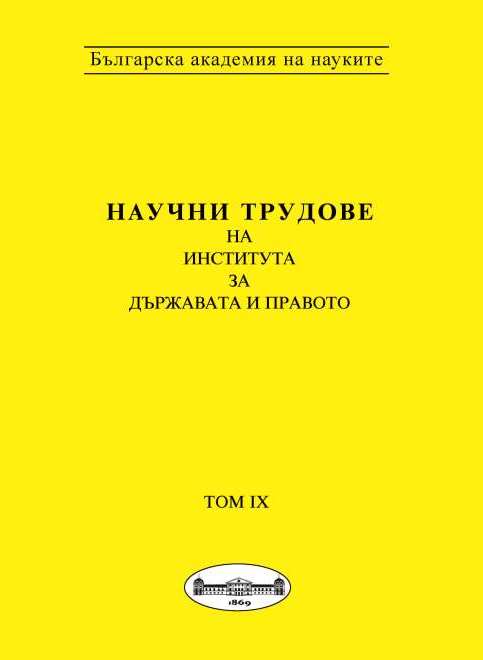Еволюция и перспективи на антикорупционната правна рамка на Европейския съюз
Evolution and perspectives in the development of the anticorruption legal framework of the European Union
Author(s): Diana KovachevaSubject(s): Law, Constitution, Jurisprudence
Published by: Институт за държавата и правото - Българска академия на науките
Keywords: European Union; international law; Fight against Corruption.
Summary/Abstract: Despite of the fact that corruption is often considered as being a major contemporary problem, it dates back to ancient times, as indicated in sources such as the Code of Hammurabi and Manu Laws. The researchers of this topic are well aware of the fact that corruption has too many legal dimensions which dominate over its political aspects. Weak legislation and institutions, which prove to be incapable to efficiently investigate and punish corruption crimes, undermine democracy and rule of law, distort competition and hamper economic development. Universal and Regional Approaches to combating corruption Over the last decades we witness different approaches to combat corruption worldwide. Among these, the approach that proves to be most successful is the approximation and improvement of national anticorruption legislations as result of the accession to international legal instruments in this field. However, in a globalised world, the national level of combating corruption is the lowest and least effective level of looking for solutions to this serious problem. The first international legal acts focused on the combat of corruption are elaborated in the 90-ies and these are primarily conventions, elaborated in the framework of international or regional organizations. Their aim is to unify the existing national regulations and reach a global model of counteraction of corruption as to encompass all the legal, social, political and cultural aspects typical of its complex nature. Among the most important and emblematic legal acts that should be mentioned are the Criminal Law Convention and the Civil Law Convention of the Council of Europe, the Convention of OECD and last, but not least the UN Convention against corruption. Fight against corruption in the Framework of the European Union The analysis of the anticorruption legal framework of the EU indicates that it is not a typical organization with anticorruption profile. This conclusion is in line with the specific goals as set in art 5 from the Treaty of European Union (TEU). However, the main driving forces of the integration process – the establishment of Internal market and Economic and Monetary Union do not exclude, but on the contrary – they demand the active search of approaches to combat corruption. A clear anticorruption policy of the EU becomes visible at the end of the 20th century. At first the emphasis is put on the protection of the budget of the EU but gradually the regulation is enlarged so that it can tackle other infringements and transnational crimes, including corruption. For quite some time the anticorruption legislation of the EU seems to complement its main economic and political tasks. This impression is also due to the fact that the topic of corruption, along with the organized crime and other serious crimes, is part of the Third Pillar of the EU...
Journal: Научни трудове на Института за държавата и правото
- Issue Year: 2014
- Issue No: IX
- Page Range: 182-216
- Page Count: 35
- Language: Bulgarian
- Content File-PDF

